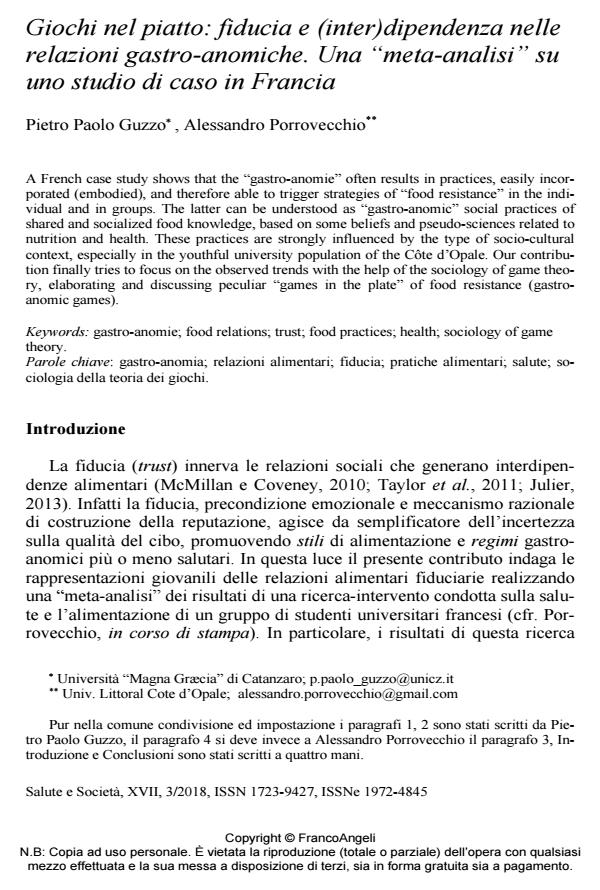Giochi nel piatto: fiducia e (inter)dipendenza nelle relazioni gastro-anomiche. Una "meta-analisi" su uno studio di caso in Francia
Titolo Rivista SALUTE E SOCIETÀ
Autori/Curatori Pietro Paolo Guzzo, Alessandro Porrovecchio
Anno di pubblicazione 2018 Fascicolo 2018/3
Lingua Italiano Numero pagine 17 P. 40-56 Dimensione file 200 KB
DOI 10.3280/SES2018-003004
Il DOI è il codice a barre della proprietà intellettuale: per saperne di più
clicca qui
Qui sotto puoi vedere in anteprima la prima pagina di questo articolo.
Se questo articolo ti interessa, lo puoi acquistare (e scaricare in formato pdf) seguendo le facili indicazioni per acquistare il download credit. Acquista Download Credits per scaricare questo Articolo in formato PDF

FrancoAngeli è membro della Publishers International Linking Association, Inc (PILA)associazione indipendente e non profit per facilitare (attraverso i servizi tecnologici implementati da CrossRef.org) l’accesso degli studiosi ai contenuti digitali nelle pubblicazioni professionali e scientifiche
A French case study shows that the "gastro-anomie" often results in practices, easily incorporated (embodied), and therefore able to trigger strategies of "food resistance" in the individual and in groups. The latter can be understood as "gastro-anomic" social practices of shared and socialized food knowledge, based on some beliefs and pseudo-sciences related to nutrition and health. These practices are strongly influenced by the type of socio-cultural context, especially in the youthful university population of the Côte d’Opale. Our contribution finally tries to focus on the observed trends with the help of the sociology of game theory, elaborating and discussing peculiar "games in the plate" of food resistance (gastro-anomic games).
Parole chiave:Gastro-anomia; relazioni alimentari; fiducia; pratiche alimentari; salute; sociologia della teoria dei giochi.
Pietro Paolo Guzzo, Alessandro Porrovecchio, Giochi nel piatto: fiducia e (inter)dipendenza nelle relazioni gastro-anomiche. Una "meta-analisi" su uno studio di caso in Francia in "SALUTE E SOCIETÀ" 3/2018, pp 40-56, DOI: 10.3280/SES2018-003004